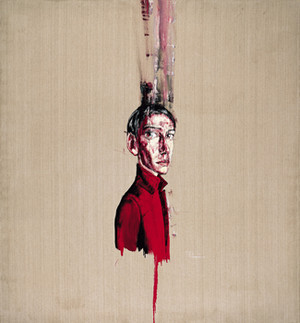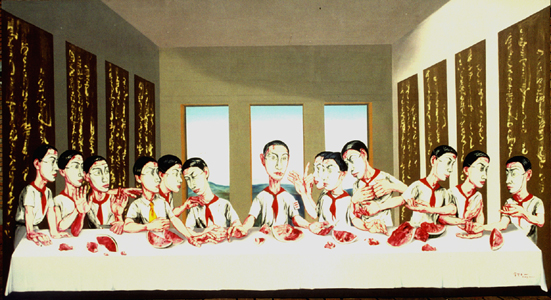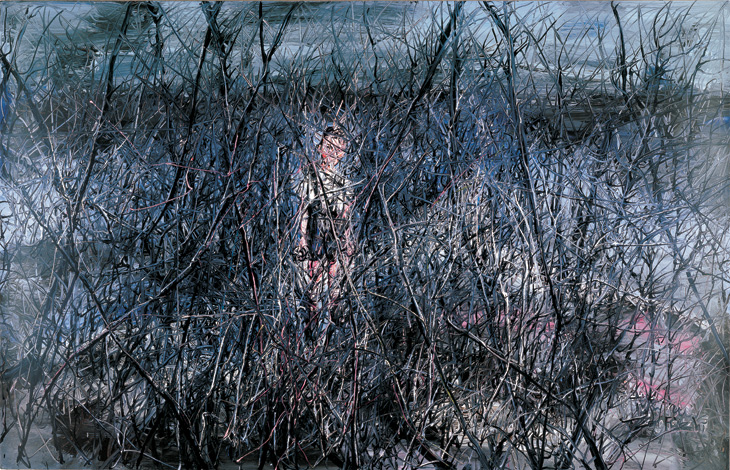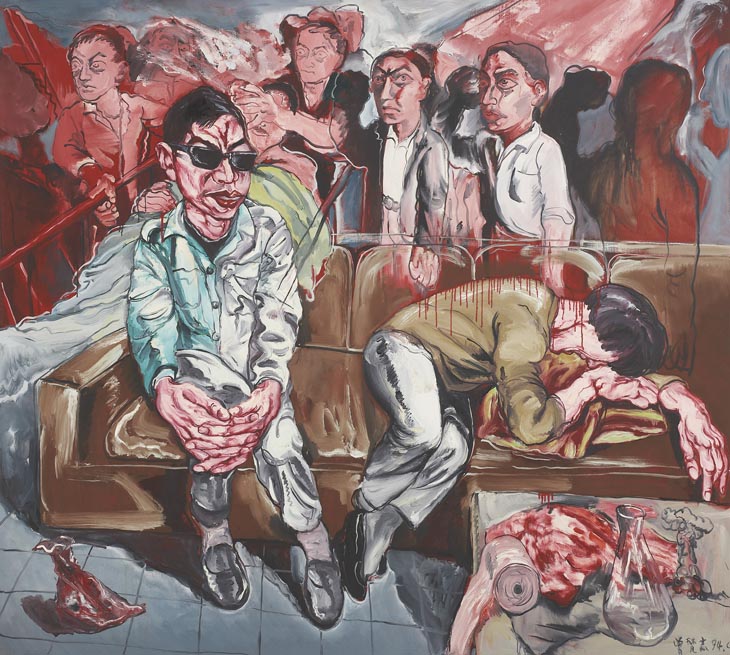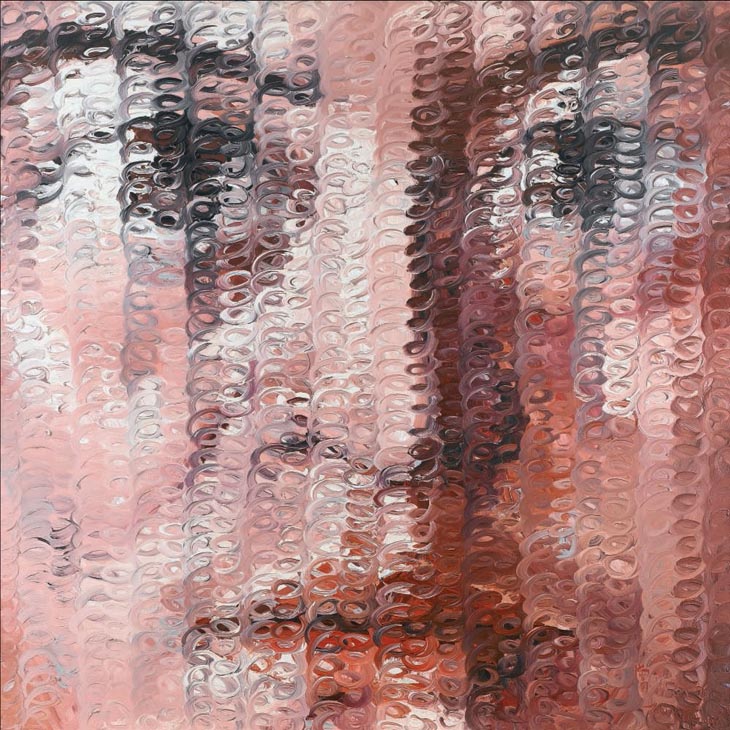ZENG FANZHI
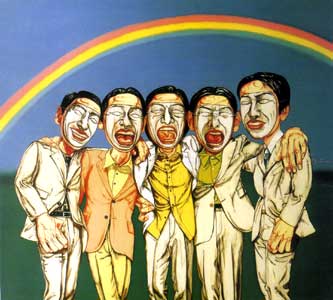
Zeng Fanzhi est né en 1964 à Wuhan (Chine). Formé à l’Ecole des Beaux-Arts de sa ville natale, il découvre durant ces années d’enseignement l’art contemporain, chinois et occidental. Nourri par ces influences et soucieux de connaître un contexte plus effervescent, il part s’installer en 1993 à Pékin où il vit et travaille depuis.
Aussi bien reconnu par les collectionneurs que par le milieu institutionnel, Zeng Fanzhi utilise depuis les années 1990 un langage original, marqué par son évidente filiation à l’art asiatique ainsi que par les nombreuses influences occidentales parvenues jusqu’à lui. C’est au travers de cette écriture totale que le regardeur se souvient de la tradition du paysage dans la peinture chinoise, tout autant qu’il pense à Warhol, Bacon, Balthus ou Pollock.
Cependant, l’œuvre de Zeng Fanzhi peut difficilement être réduite à une assimilation de parangons traditionnels et modernistes. En ayant multiplié les styles et les thématiques, l’artiste fait preuve d’une volonté de recherche, tant picturale qu’intellectuelle, et d’une technique contrôlée. La confrontation à ces toiles laisse le spectateur seul face à une infinité, comme une étreinte dans le monde intérieur de l’artiste.
L’œuvre de Zeng Fanzhi mélange histoire de la Chine et histoire personnelle. Ses souvenirs de jeunesse, lorsqu’il vivait près de l’hôpital de Wuhan, marque la première série de toiles qui représentent opérations, salles d’attente, viandes et corps dévêtus. D’autres toiles des années 2000 rappellent le passé politique de la Chine, comme Tian’An Men (2004) où l’on reconnaît Mao. Et si les tableaux appartenant aux Mask Series sont encore sous l’influence du Pop Art, les récents portraits et paysages s’approchent d’une abstraction plus sombre. Ces polyptyques gigantesques, barrés de ronces d’où fourmillent animaux et corps humains, sont d’un expressionnisme contenu qui se réfère à la peinture allemande et en particulier à celle de Dürer.
Source : Musée d’Art Moderne de la Ville de Paris
Zeng Fanzhi was born in 1964 in Wuhan, China. In the course of his training at the art school there he got to know both Chinese and Western contemporary art. Driven by these influences and keen to find a more stimulating context, in 1993 he left for Beijing, where he now lives and works.
Highly respected by private collectors and museums, Zeng Fanzhi has been deploying since the 1990s a distinctive language marked by his kinship with both Asian art and the many Western influences he has been subjected to. Confronted with this all-embracing style, the viewer is reminded of Chinese landscape painting at the same time as he thinks of Warhol, Bacon, Balthus and Pollock.
Nonetheless, Zeng Fanzhi’s oeuvre can hardly be reduced to an assimilation of traditional and modernist paragons. In his use of many different styles and themes, the artist combines a rigorous spirit of painterly and intellectual investigation with great technical control. Looking at these canvases, the spectator is left facing something infinite, as if pulled into the artist’s inner world.
Zeng Fanzhi’s work mingles the history of China with his own personal history. His memories of a youth spent living near the hospital in Wuhan have left their mark on the early series of pictures, with their depictions of surgical operations, waiting rooms, meat and unclothed bodies. Other works from the 2000s call up China’s past: in Tian’An Men (2004), for example, we recognise Mao. And while the pictures making up the various Mask Series still betray the influence of Pop Art, the recent portraits and landscapes tend towards a darker abstraction. Hatched with brambles and seething with animals and human bodies, his gigantic polyptychs show a restrained expressionism that references German painting, and that of Dürer in particular.
Source : Paris Museum of Modern Art
TRAVAUX / WORKS
